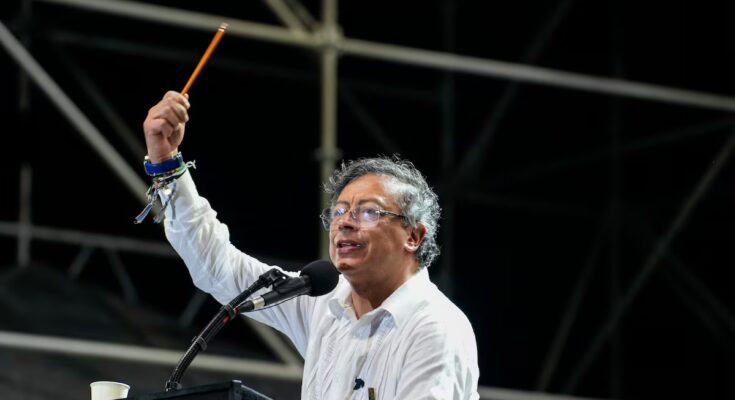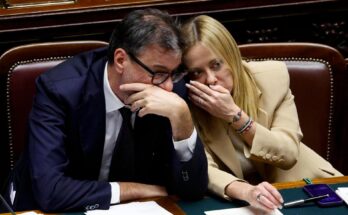President Gustavo Petro has ordered “all levels” of the Colombian public force to suspend “sending communications and other reports” with US security agencies. The measure, announced n
The Colombian president’s order comes in response to a revelation by the CNN television network, according to which the United Kingdom has stopped sharing intelligence information with the United States on ships suspected of drug trafficking in the Caribbean Sea because it “does not want to be complicit in US military attacks and believes that these are illegal”, several sources close to the matter told US media.
By controlling Caribbean territories, such as the British Virgin Islands, Anguilla or Bermuda, the United Kingdom was an important ally of Washington in locating suspicious ships. That cooperation, according to CNN, is over.
Petro has been very critical of his American counterpart, Donald Trump, for the bombings, which were first concentrated in the Caribbean, and then extended to the Pacific. “I ask the United States government once again to return to respect for human rights in the fight against drugs. What they do by launching missiles in the Caribbean against poor boatmen, whether or not they are at the service of cocaine transport operations carried out by drug lords who are not affected by the operations, are nothing more than extrajudicial executions against defenseless Caribbean and Latin American citizens,” the Colombian said a few days ago in an article on
During the summit between the Community of Latin American and Caribbean States (Celac) and the European Union (EU), which took place last weekend in the coastal city of Santa Marta, Petro assured that “the same missiles that fall in Gaza, fall here, in the Caribbean, on poor people”. And although the final statement does not explicitly condemn Trump’s military campaign, it was the shadow that veiled the event. Brazil’s Luiz Inácio Lula da Silva stressed that “the threat of the use of military force has once again become part of daily life in Latin America and the Caribbean,” while the EU’s high representative for foreign affairs, Estonia’s Kaja Kallas, said in an interview with EL PAÍS that the bloc is “concerned about the global phenomenon of organized crime” and that it is an issue that must be “addressed together.”
Petro did not specify in detail which bodies will stop sharing intelligence with Washington, but when he talks about “public force intelligence levels” it is assumed that he is referring to the Directorate of Police Intelligence (Dipol), Naval Intelligence, Special Air Intelligence and Cyberspace, and the Department of Military Intelligence and Counter-Intelligence. Collaboration with the United States in this area is vital for Colombia, even more so when organized crime plagues the country with multiple armed groups spread across the national territory, which finance themselves through illegal economies such as drug trafficking, illegal mining, human trafficking or extortion.
US attacks are getting closer to Colombia, the world’s largest cocaine producer. Of the 18 ships sunk to date, at least four have some connection to the country. Petro claims that in an attack on September 15 in the Caribbean, a Colombian man, whom he identified as fisherman Alejandro Carranza, died. The attack “allegedly” occurred in the country’s waters. The next day, the Americans sank a supposed submarine carrying the Colombian Jonathan Obando Pérez, who survived the bombing. The man was rescued by US forces and returned to Colombia. Although Washington sent him to be tried under Colombian law, Obando Pérez was freed because it could not be proven that he had committed a crime.
On October 17, another vessel was attacked in the Caribbean. The US Secretary of Defense, Pete Hegseth, then linked him to the National Liberation Army (ELN), the last armed guerrilla in Colombia. And on October 22, Hegseth admitted that one of Washington’s first attacks in the Pacific occurred “off the coast of Colombia.” It is not known whether that boat left from Colombia or whether there were Colombians on board.
The Colombian’s announcement has so far had no reaction from the United States.



